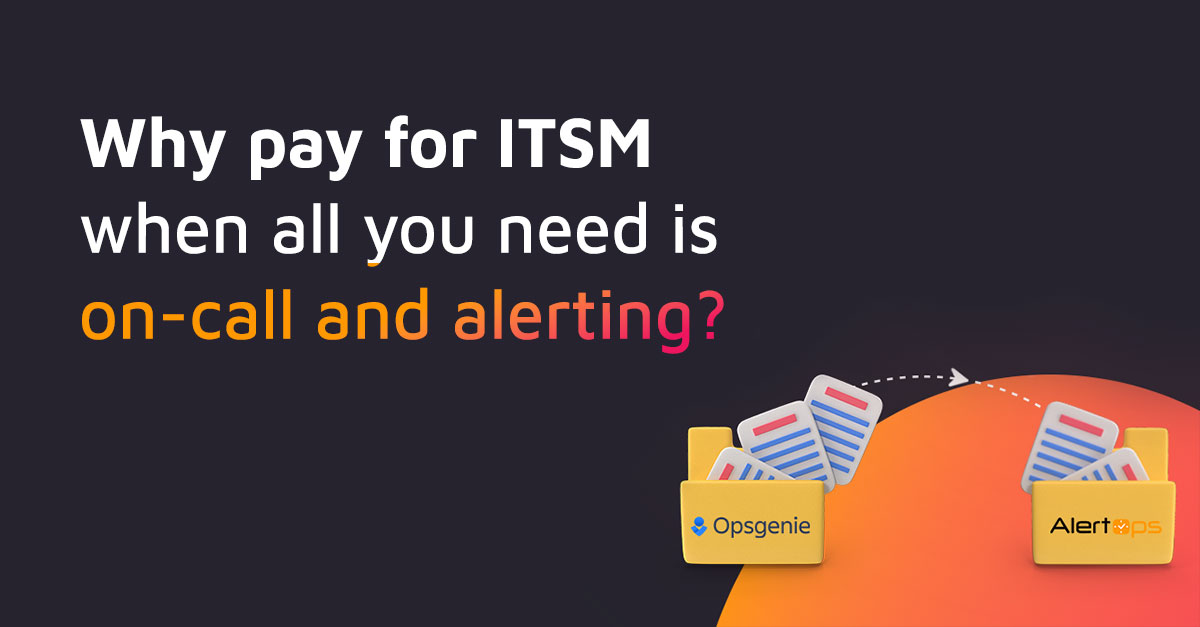Your NOC data center is vital to your enterprise’s success, due to the fact that it bridges the gap between your computer network and telecommunications infrastructure.
This center also enables your enterprise to quickly and effectively identify IT downtime and outages and address these incidents before they damage your enterprise and its stakeholders. At the same time, your NOC team can dictate data center availability — and how NOC team members who understand how a NOC improves data center availability can have a significant impact on your enterprise’s productivity and efficiency.
Data Center Availability: What Is It, and Why Is It Important?
Availability is a key goal of enterprise data centers. If your data center resources are readily available, your enterprise can provide the services and support that its stakeholders expect. If an IT incident occurs that hinders data center availability, your enterprise could suffer revenue losses, brand reputation damage, and related issues.
Your NOC team can monitor data center availability, particularly if it has dashboards in place to track incident management data and metrics. Dashboards provide NOC team members with insights they can use to track data center availability in real-time, as well as identify availability trends and patterns. Over time, NOC team members can use these insights to find ways to optimize data center availability. The result: NOC team members can work toward 100% data center uptime, comply with SLAs, and ensure your enterprise is well-equipped to support its stakeholders now and in the future.
A Closer Look at How a NOC Improves Data Center Availability
Your enterprise NOC team improves data center availability in the following ways:
1. Centralized Support for a Computer Network and Telecommunications Infrastructure
Your NOC team simultaneously tracks your computer network and telecommunications infrastructure. If a network or telecommunications issue arises, your NOC team can identify the issue and resolve it without delay. Additionally, your NOC team fosters communication and collaboration, so team members can work with one another to address network and telecom issues before they lead to IT downtime and outages.
2. IT Infrastructure Management
Your NOC team understands your IT infrastructure and manages all aspects of it. In the event that an IT infrastructure problem is detected, your NOC team corrects the issue. Furthermore, your NOC team tracks IT infrastructure performance data and uses this information to identify improvement areas. With this data, your NOC team can find ways to enhance your IT infrastructure and maximize its performance.
3. IT Incident Identification and Resolution
Your NOC team keeps an eye out for IT incidents that otherwise disrupt your enterprise’s everyday operations. The team watches for security vulnerabilities and other issues that could lead to a cyberattack or data breach. Your NOC team also has incident management processes, protocols, and procedures in place to immediately mitigate incidents. Your NOC team can resolve incident as quickly as possible, thereby limiting its impact on your enterprise and its stakeholders.
4. Data Backup and Storage
Your NOC team collects enterprise data and stores it safely. It ensures that this information is secure and limits data access to authorized users. The team also backs up data regularly and maintains copies of data sets off site. This makes it possible for your business to recover more quickly in the case of a major data loss catastrophe.
How Can Your NOC Team Maximize Data Center Availability?
Clearly, your NOC team can have a major impact on your enterprise’s ability to optimize its data center uptime. For NOC team members who are exploring ways to further improve data center availability, there are several things they can do to achieve their desired results, such as:
1. Identify and Eliminate Single Points of Failure
Create a backup strategy that accounts for all areas of your enterprise’s IT infrastructure. Your NOC team must evaluate your IT infrastructure, find points of failure, and explore ways to eliminate these points of failure. NOC team members may also want to consider virtualization, redundancy, clustering, and other managed service solutions to address these issues.
2. Plan for the Worst-Case Scenarios
Encourage NOC team members to prepare for all types of natural disasters, along with any other incidents that could result in substantial downtime. There is no telling when a major incident may occur, and your NOC team needs to be ready for any incident, at any time. By preparing for the worst-case scenarios, your NOC team will be well-prepared to resolve major incidents. In some instances, your NOC team may be able to prevent these incidents before they occur, too.
3. Proactively Monitor Networks and Systems
Proactive monitoring of networks and systems enables your NOC team to find and address minor issues before they escalate. Remember, it may seem time-consuming to proactively monitor networks and systems, but doing so can deliver long-lasting benefits. If your enterprise can resolve minor network and system issues now, it can prevent an incident from happening — and avoid damage caused by the incident.
4. Capitalize on Virtualization
Along with using a data center, virtualization tools enable your NOC team to keep your data available and secure. Together, using a data center and virtualization tools can help your enterprise maintain uninterrupted access to information.
Want to Improve Data Center Availability? AlertOps Can Help
Your enterprise NOC team demands the best results — if your NOC team uses the AlertOps incident management platform, it may uncover innovative ways to improve data center availability and accelerate and improve your day-to-day operations.
AlertOps takes the guesswork out of incident management, as our platform can provide your NOC team with insights into incidents across your enterprise. Our platform also empowers NOC team members with dashboards and other tools they can use to identify ways to speed up incident response, stop incidents before they occur, and more.
The AlertOps platform is a great option for NOC teams, and it can be used for a wide range of use-cases as well.



